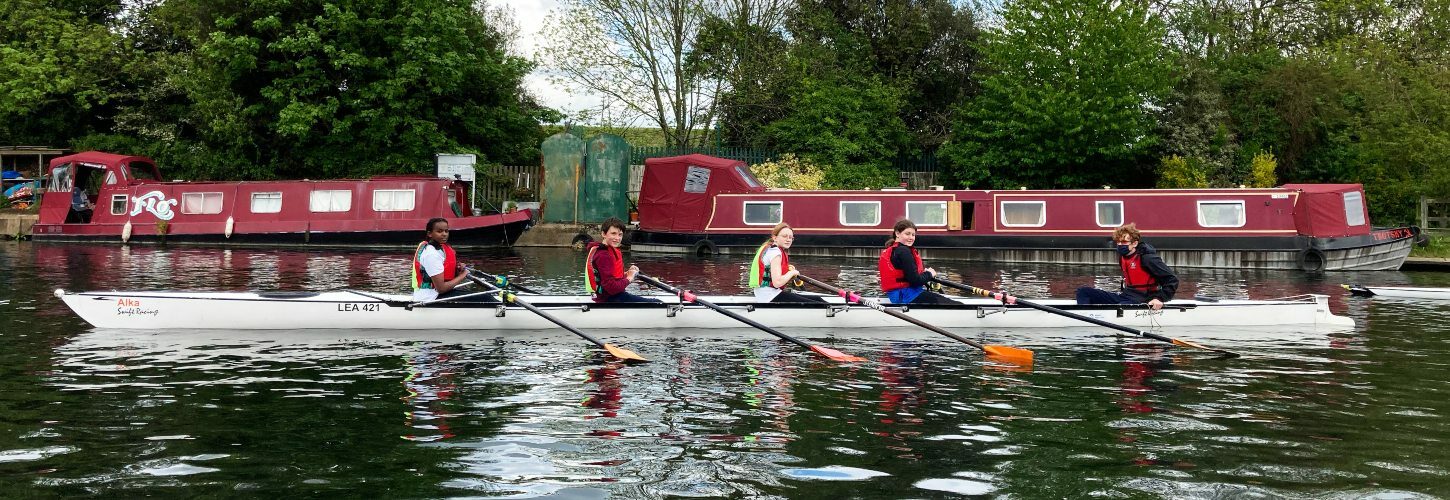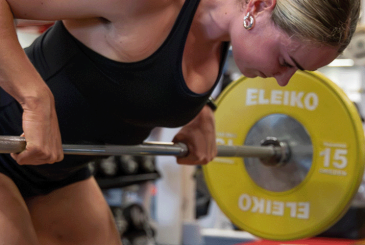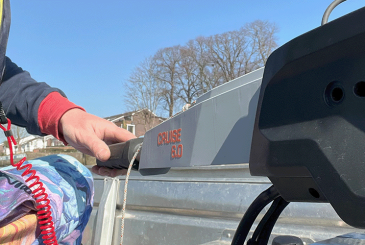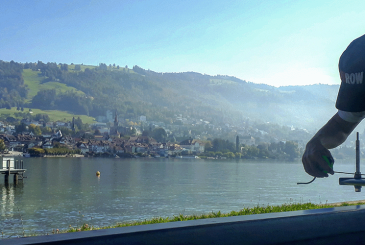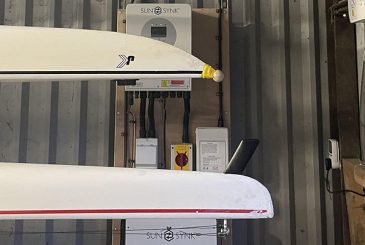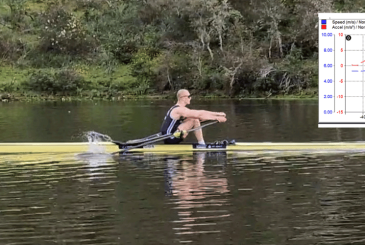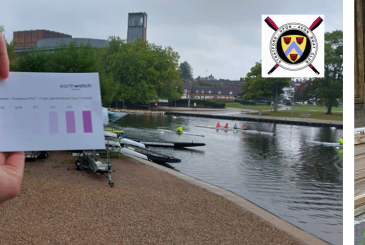An Olympic and Paralympic Games provides a global spotlight for rowing. Zoe Gullen talks to three clubs about their plans to make the most of this extra interest in the sport
The countdown clock stopped in 2020 as the pandemic took hold, but it was soon re-set and is now ticking down towards the Tokyo Games.
The Olympic rowing events get under way on the Sea Forest Waterway on 23 July, followed by the Paralympics on 27 August, and expectations will be high: rowing was one Team GB’s strongest sports at London and Rio. Following both Games, there was a significant uptick in interest in rowing, and Tokyo 2020 is set to be no different, presenting clubs with a golden opportunity to capitalise on the Tokyo effect to celebrate and promote the sport.
London 2012, in particular, delivered on its mission to inspire a generation, with around 11,500 people joining British Rowing in the following year.
Matt Pooley, captain of Lea RC, says: “2012 was a big year for the Lea. We are in Hackney, right next to the Olympic Park, so very visible to those attending the stadium, and the only club in the area with an existing learn to row set-up. This, combined with the general interest in sport and rowing, in particular, meant that we had a massive influx of new interested parties. We ran at least four concurrent learn to row courses over the summer, plus extra ‘fast-track’ courses in September/October 2012.”
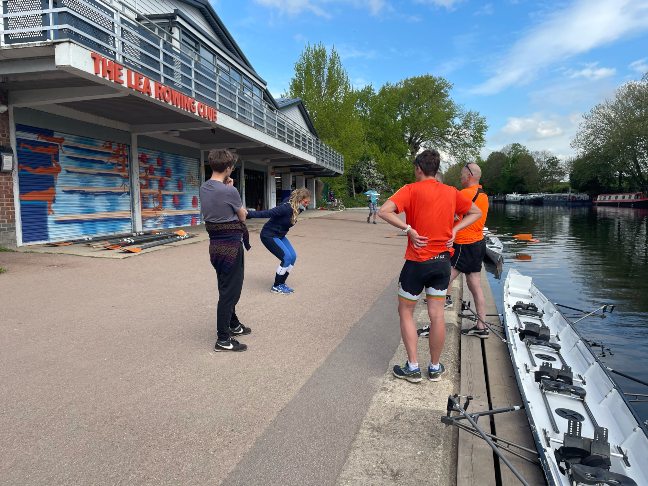
The club’s membership has more than doubled since 2012, and Matt says: “We now have a real grassroots legacy of the Olympics in East London to inspire future generations to take up the sport at all levels.”
“If you miss it, you’ve missed an amazing opportunity”
More recently, health and wellbeing, and the importance of exercise, particularly outdoors, came to the fore during the pandemic, and has already translated into significant interest in rowing.
Mike Parsons, club chairman at Marlow, says: “The whole lockdown thing is quite interesting, because participation levels in team sports have obviously plummeted. What we are finding is people’s interest in sport is high, very high.
“We see a lot of demand from adults, and just after the Easter break we started our first wave of adult learn to row – it has 50 people in it and it’s full. We had a hundred people on the waiting list through COVID.”
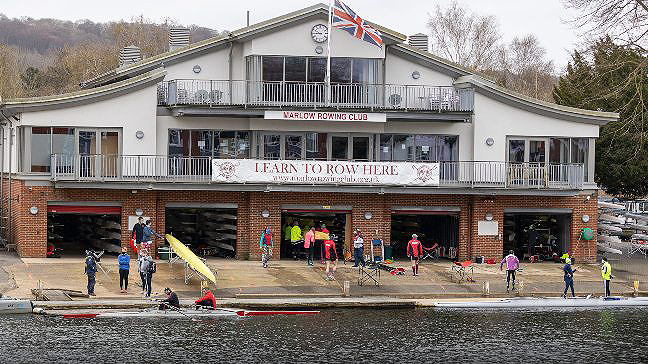
Aba Carboo, captain at Putney Town, agrees: “We’ve already noticed the effect of the unlocking of lockdown and people wanting to do sports, people hearing about sporting events coming up, or walking along the river, seeing the rowers out having fun.”
As momentum builds around Tokyo, it is vital that clubs are ready to deal effectively with the level of interest: Aba says: “If you miss it, you’ve missed an amazing opportunity.”
“Our first 90 slots for the taster sessions sold out in 30 minutes!”
At times, she says that 2012 ‘felt slightly overwhelming’. Learning from this: “We need to have everything in place, have our open days ready.
“We’ve got the fliers already, we’ve got a learn to row banner up on the balcony” – in 2016, the banner promoted the club’s learn to row, and also Team GB scullers Charlotte Taylor and John Collins as their road to Rio began at Putney Town.
The communications officer is also making sure the website is up to date and fully accessible, and representative of the diversity within the club and its local community.
At the Lea, Matt says: “We have put a big focus on attracting people from all walks of life in East London that reflects the diverse make-up of our local community. The Lea has always been about giving local people opportunities – making competitive sport accessible to all, and our learn to row courses are designed to do that.”
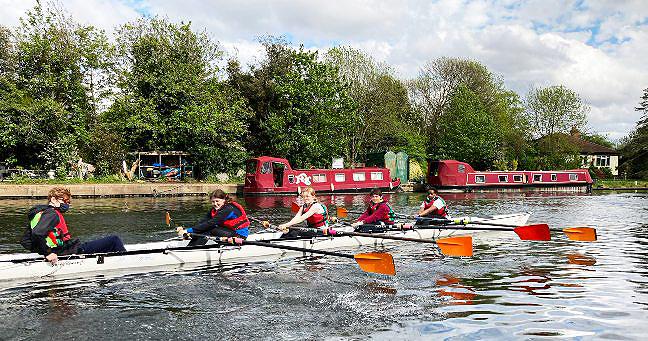
Aba says that many newcomers simply want to have a go, a one-off just to experience being in a boat. She adds: “We are happy to give them that experience. Some of them come back again in the future and I can imagine there will be some who will apply for the learn to row course after the Olympics.”
Similarly, at the Lea, Matt says: “We have just started running a new programme of rolling taster sessions alongside our usual summer course, to ensure that as many people as possible get their first experience in a rowing boat.
“Our first 90 slots for the taster sessions sold out in 30 minutes!”
Marlow, meanwhile, runs one-on-one sculling coaching as well as adult and junior learn to row, again with a very clear set-up and pathway to welcome newcomers and get them on the water as soon as possible.
As well as establishing what can be offered, it is also vital to have the facilities and team in place to deliver it, possibly by investment in coaching and equipment. To run COVID-secure junior learn to row courses, Marlow not only put together a fleet of single sculls with floats – but also recruitment and engagement across the club membership.
Mike says: “Like all clubs we run pretty much entirely on the effort of our volunteers, and there’s always a balance to strike between volunteering and paying.”
For the junior learn to row, which he describes as “the absolute bedrock” of the Marlow junior programme, volunteers work alongside professional coaches, and the club pays attention to their own development.
“We’ve now got a process where we’ll take our graduating juniors – our J18s – and we teach them to launch-drive and we start to put them through session-coach training. We teach them to drive, and they tend to come back in summer breaks.”
Supporting the courses in this way is, Mike says: “something they quite enjoy. It’s in familiar surroundings and they can earn a bit of money”.
Also, for the adult courses, “We’ve got a brilliant admin in the background organising everything who’s an absolute whizz at that sort of stuff. Most years a British Rowing coach educator will come along and run session-coach training, and we’ll offer RYA 2 training for those who are willing to coach from launches.”
At Putney Town, the learn to row courses – held once a year – are entirely volunteer-run. Aba says: “All the members get involved, because the income we generate goes back into the club, they know there’s a reward in it for them.
“They’re all signed up for sessions, whether they’re rowers in boats or coxes or driving launches. It’s a huge club effort and it does bring everyone together. It’s also a benefit for the squads, because that’s where we get our members from.”
At the end of the Putney Town course, those who wish to continue move up into the development group, and eventually the club’s racing or independent recreational squads. Having a clear plan that sets out the next steps is critical for the retention of new members, to support their progression towards what they want to get out of the sport.
At the Lea, in addition to the various learn to row initiatives, Matt says: “We’re also looking at establishing new pathways through the club to ensure that as many as possible can stick around.”
This has already been done with significant success. “Our crews that won club events at Henley Women’s Regatta in 2013, 2015 and 2017 included a bunch of people from the 2012 intake.”
As well as newcomers, there will also be those who are inspired to return to rowing.
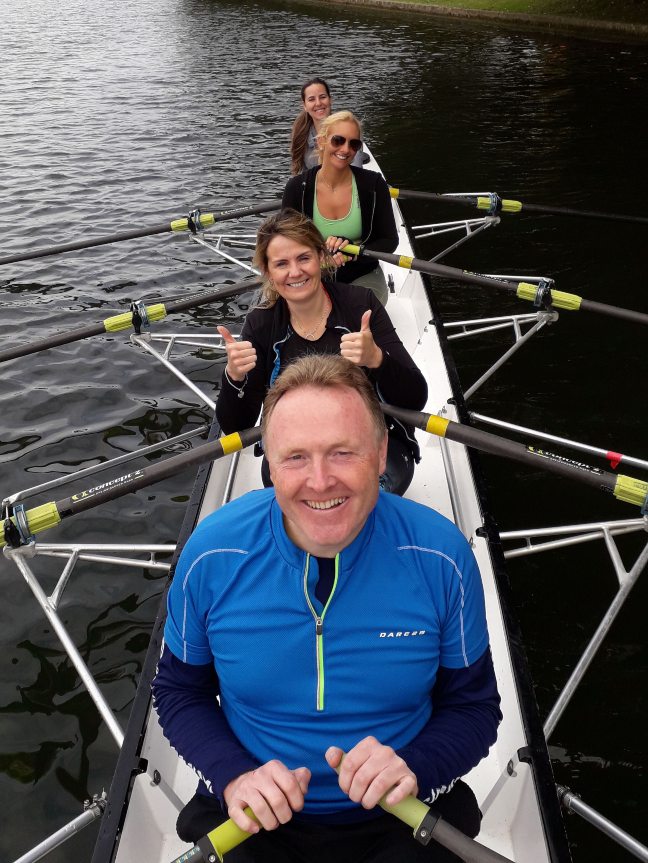
Already, at Putney Town, Aba says: “We’ve got people coming back: often they rowed at university and now they’d like to come back to it.
“We’re doing things bit by bit, a cautious re-opening. They’re finding the relaxed manner of a pre-season start much more enjoyable, without the pressure. Then, if they start seeing a bit more competitive rowing, not only the Olympics, but the domestic scene, people start getting their itch back and they want to have a go.”
Off the water, the Tokyo Games will be a focal point for clubs to connect with their communities, and membership past and present, through social events and also more formal initiatives, such as the Friends of the Lea, which was launched in March this year.
“A big part of our success is our welcoming community spirit”
At Marlow, Mike says: “We’re excited about the Olympics anyway because we’re rowers and we love seeing rowing on TV, but we’ve also got members in the GB squad and we’ve got a chain of our juniors who are coming through the process.
“We’ve got that whole high-performance stream, so there is a pretty strong attachment to the whole Olympic movement. We’re also very proud of our Para group, and Kingsley Ijomah, of Nigeria, has been selected for Tokyo. COVID regulations allowing, we’ll be watching it in the bar and having some social stuff.”
It is also the club’s 150th year, and celebrations will run through the summer, beginning in late May with a socially distanced tea at which members will take to the water in different outfits worn by rowers across the ages. “As a club, it’s a big year for us, which we’re really excited about.”
Aba says: “I would like us to be able to open up the club. We’ve got our centenary coming up, and an enthusiastic group researching the club history.
“We had an idea to display the history of the club as a community event for the people who have lived around the area and walked past the club and wondered what was inside. During COVID we obviously haven’t been allowed to use the bar inside, so we’ve got a licensed bar running outside one of the boat bays. Passers-by could get a cup of tea or buy a drink, walk around the exhibition and see there’s some rowing on.
“I think that would be a really nice way of opening the club up to the community and getting some more interest in the sport.”
Top tips
1 – Aba Carboo: Work out what you want to be as a club, and who you are targeting.
2 – Matt Pooley: A big part of our success is our welcoming community spirit – we are a club that wants to win Henley, but adamant that racing prowess is not incompatible with finding a place for all who want to row.
3 – Mike Parsons: We’ve got a really good gang of coaches, and one person at the helm pulling it all together. Putting organisation into the whole thing has really helped.
Photos: David Kingsbury, Lindsay Segall, Paul Vernall


